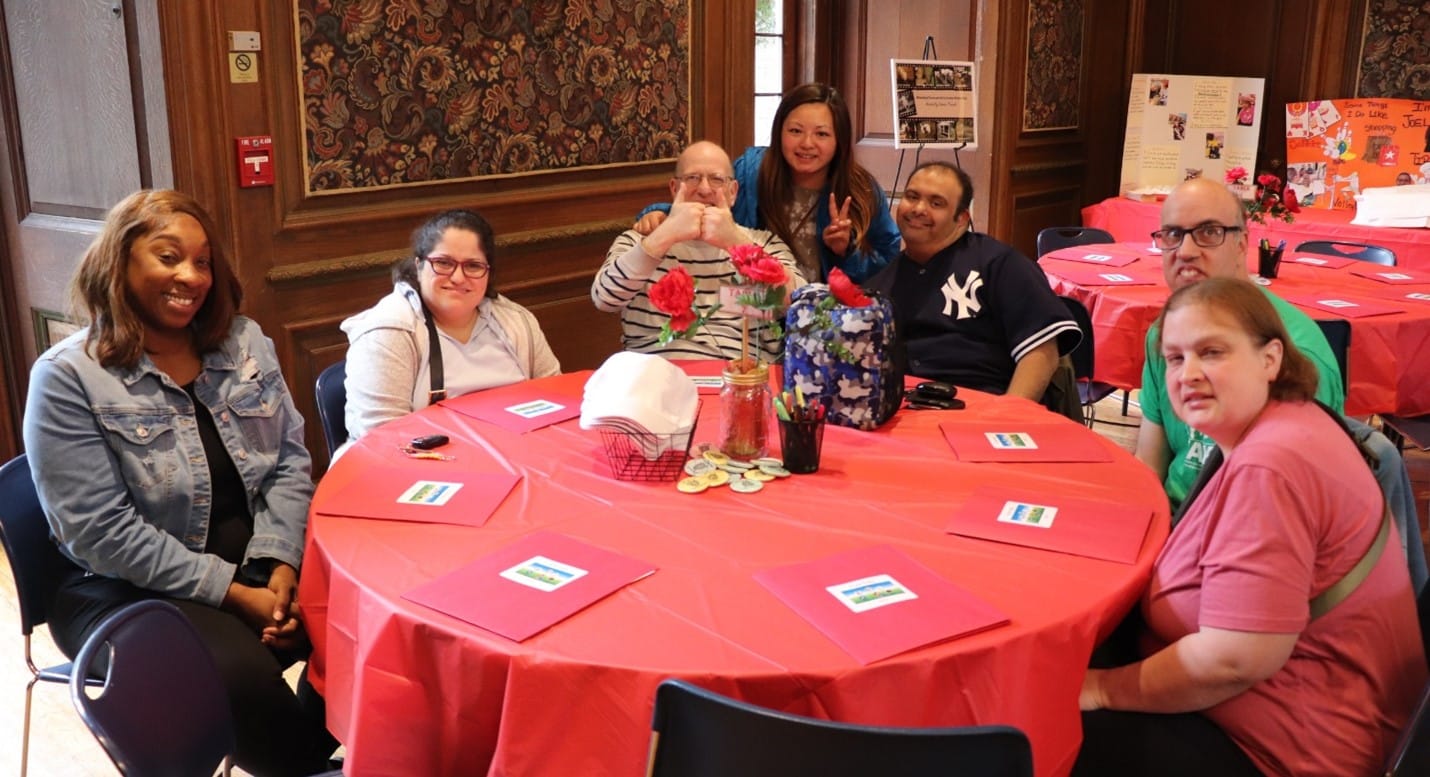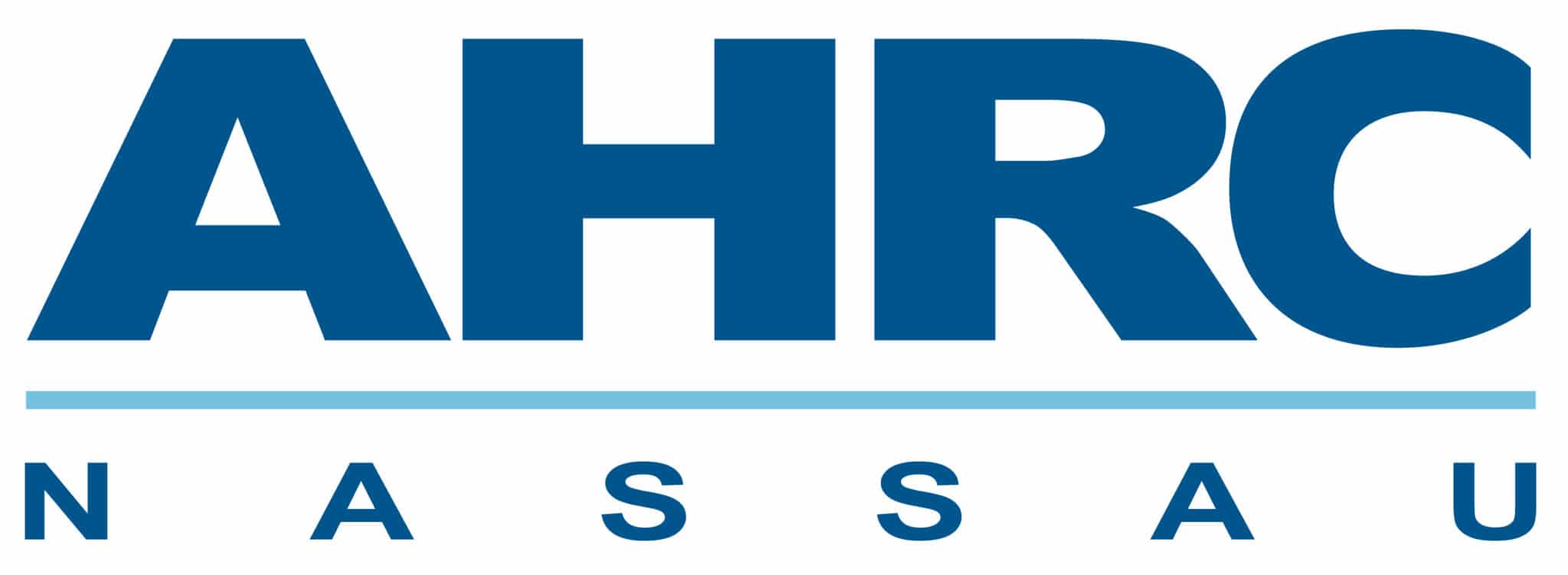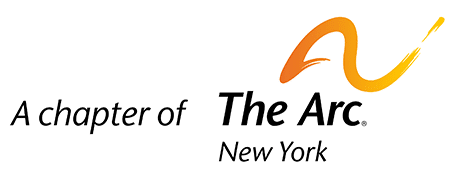 During Compass Validation Week, the Brookville mansion ballroom was filled with excitement and purpose as over 70 people supported by Day Services gathered for a Personal Outcome Measures (POMs) Rally. This spirited event centered on themes of independence, empowerment, values, and community impact—core elements that define a meaningful quality of life.
During Compass Validation Week, the Brookville mansion ballroom was filled with excitement and purpose as over 70 people supported by Day Services gathered for a Personal Outcome Measures (POMs) Rally. This spirited event centered on themes of independence, empowerment, values, and community impact—core elements that define a meaningful quality of life.
The Rally was led by Personal Outcome Measures Interviewers Kate Zimmerman, Samantha Rodonis, Susan Gill-Orange, and Bridget Cariello, Assistant Director of Project Development, who guided rally attendees through an engaging presentation centered on social roles.
Kicking off the event was Dr. Lucy Klym, CQL Quality Enhancement Specialist, who introduced the concept and highlighted how social roles are different from other relationships. She explained how these roles as a friend, volunteer, employee, or advocate contribute to one’s identity and overall well-being.
“Social roles are a reflection of how we connect to the world and make an impact,” Dr. Klym shared. “They are not just what we do, but who we are within our communities.”
When Lucy concluded, Susan addressed the crowd asking them questions, “What does having a role mean?”
Dean Davidson, who sat with his peers responded, “A role is the way you act in being independent and taking control of your life.” Another person shared, “It’s like acting in movies,” drawing laughter from the crowd.
Susan replied, “Correct! In that a social role is a part that you play in life, and how you show up for others.”
Throughout the Rally, self-advocates explored how identifying and nurturing their own social roles can lead to a stronger sense of purpose and inclusion. To illustrate the different types of roles, Michelle Rudoff, Coleen Mackin, and Steven Barsh agency self-advocates and Quality Enhancement Trainers, along with James Parks, and Desiree Mitchem, agency self-advocate volunteers, wore hats labeled “Leader,” “Employee,” “Friend,” and “Volunteer.”
Whether advocating for themselves, volunteering in their neighborhoods, or simply taking on responsibilities in their day-to-day lives, each role reinforces a person’s ability to contribute meaningfully to their communities.
“Our goal is to increase social roles,” Kate said, “For people to be responsible and valued in the community so they are not only going to church but volunteering at church.”
At their table, people had a folder with POMs documents diving deeper into social roles, a blank white hat, and markers. After the presentation, the POMs team encouraged people to think about their present lives and identify their current social roles. They wrote these social roles on the hat provided. Several people were surprised to discover they held more than one—such as brother, friend, and volunteer.
The presentation was a celebration of voice, identity, and the importance of being seen as valued and contributing members in one’s community.

